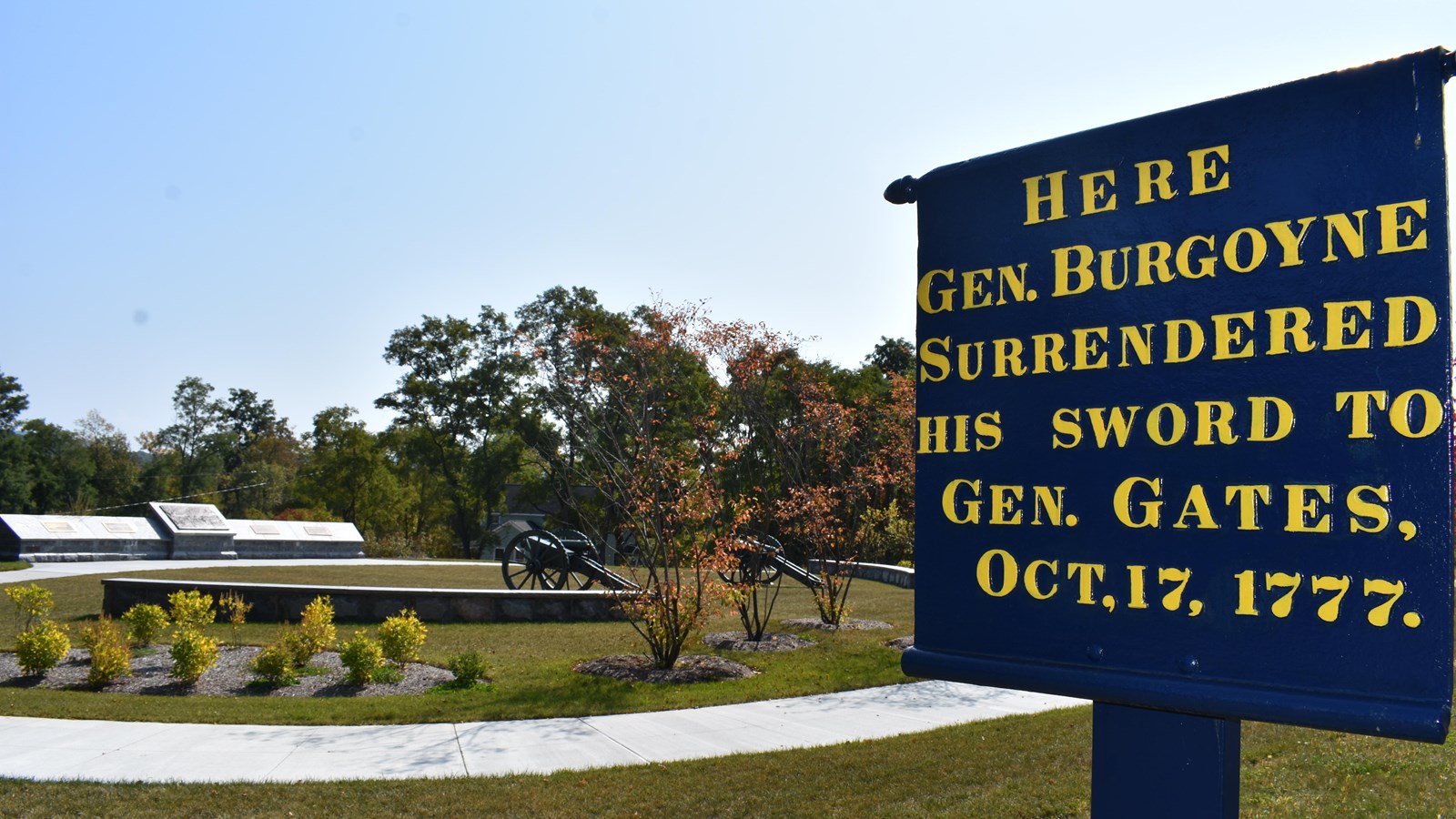Joyful News from Saratoga
The General has his happiness completed relative to the successes of our northern Army. On the 14th instant, General [John] Burgoyne, and his whole Army, surrendered themselves prisoners of war—According to Col. Timothy Pickering, the chaplains’ sermons were forestalled by a report that “the enemy were marching towards us,” so the soldiers had to muster for battle instead. But “the enemy pretty soon went back to their quarters.”
Let every face brighten, and every heart expand with grateful Joy and praise to the supreme disposer of all events, who has granted us this signal success—The Chaplains of the army are to prepare short discourses, suited to the joyful occasion to deliver to their several corps and brigades at 5 O’clock this afternoon—
immediately after which, Thirteen pieces of cannon are to be discharged at the park of artillery, to be followed by a feu-de-joy with blank cartridges, or powder, by every brigade and corps of the army, beginning on the right of the front line, and running on to the left of it, and then instantly beginning on the left of the 2nd line, and running to the right of it where it is to end—The Major General of the day will superintend and regulate the feu-de-joy.
The evening celebration went on. Over on the British side, Maj. John André wrote in his journal, “at sunset firing was heard in the direction of the Rebel Encampment. This was a feu-de-joie on account of the taking of General Burgoyne and the Northern Army.”
(A feu-de-joie involved soldiers firing their muskets in rapid succession to make a long ratatat-tat-tat sound.)
Washington was especially pleased with that news because his own army was still reeling from losses at Brandywine, Paoli, and Germantown. He had just heard from Gen. Israel Putnam about British forces storming up the Hudson. The last letter he’d received from Gen. Horatio Gates indicated that Gen. Burgoyne’s campaign was still a threat.
Thus, the commander-in-chief was delighted when Putnam passed on a note from Gen. George Clinton in Albany dated 15 October:
Last Night at 8 OClock the capitulation whereby Genl Burgoyne and whole Army surrenderd themselves Prisoners of war was sign’d, and this morning they are to march out towards the river above fish Creek with the honors of war (and there ground their Arms) they are from thence to be marched to Massachusets Bay. We congratulate you on this happy event, and remain yrs &c.In fact, that report was premature. Burgoyne and Gates started talks on 14 October, but it took three days before the British and Hessian soldiers actually surrendered. All the while, Gates was worrying about whether Crown reinforcements might arrive and change Burgoyne’s mind.
Now technically we could say Washington’s army didn’t jump the gun because the British army did surrender on 17 October, one day before the celebrations in Pennsylvania. But Washington was still operating on false information.
Discussing Saratoga gives me leave to note that the national park there has a new Chief of Interpretation starting today. Garrett Cloer previously worked at Minute Man National Historical Park, Independence National Historical Park, and Longfellow House–Washington’s Headquarters National Historical Site, all places with serious Revolutionary history, in addition to his latest posting at the Herbert Hoover Birthplace in Iowa. He’ll be a real asset to Saratoga.
The photo above shows the Saratoga surrender site, which will soon also become part of the national park there. For the past two years that landscape has been managed and upgraded by the Friends of Saratoga Battlefield.


%2C_2nd_president_of_the_United_States%2C_by_Asher_B._Durand_(1767-1845)-crop.jpg)